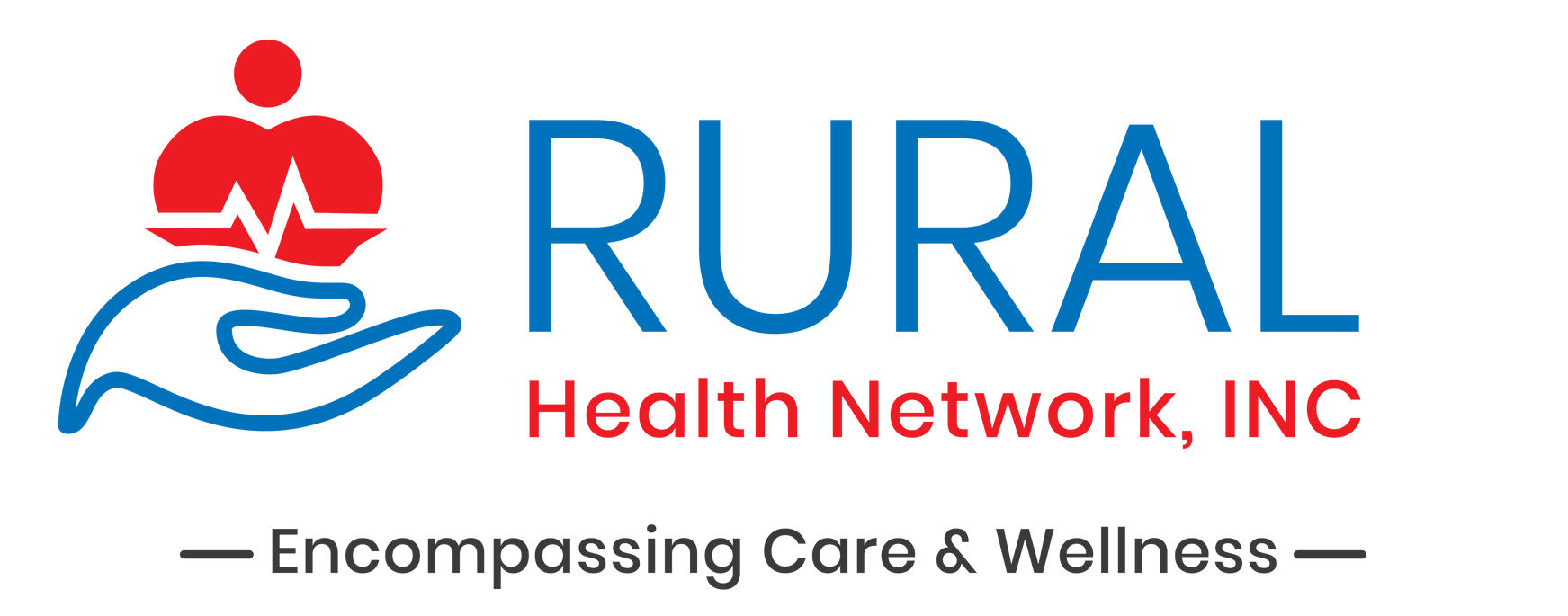We’ve all been there—sitting in the doctor's office, listening to them explain the importance of this new medication, nodding and glancing at the prescription, and feeling determined to follow the instructions perfectly. But as days became weeks, life got busy, and those little pills started slipping through the cracks.
Whether or not missing a dose was intentional, you're not alone! Medication non-adherence is a widespread issue, affecting millions of people globally. The consequences can be severe, from missed doses to skipped refills, impacting health outcomes and straining healthcare systems. This is a significant concern for healthcare professionals globally, and an urgent solution is needed.
Let's break down the significance of sticking to your medication regimen and how it impacts your overall well-being. At
Rural Health Network Inc., we are committed to helping you follow through with your treatments and prescriptions, ensuring you experience better outcomes and lasting wellness.
Vital Statistics on Medication Non-Adherence
Statistics reveal the alarming extent of medication non-adherence. According to the World Health Organization (WHO), approximately 50% of people with chronic diseases do not adhere to their treatment plans as prescribed. This
poor adherence leads to around 125,000 deaths annually in the United States and accounts for 10% of hospitalizations. These figures highlight the critical need for strategies to improve medication adherence for better health outcomes.
The Impact of Medication Non-Adherence
Medicine non-adherence is a recurring challenge for providers and patients alike. When patients stray from their prescribed medication routines, it doesn’t just lead to worse outcomes; it triggers a domino effect that spans from individual health to the entire healthcare system. Here's a closer look at how medication non-adherence can impact the bigger picture:
Economic Impact
The financial burden of medication non-adherence on the U.S. healthcare system is staggering, with costs estimated between $100 billion and $300 billion annually. This substantial economic impact arises from the increased need for hospitalizations, emergency room visits, and additional doctor appointments that result from patients not adhering to their prescribed medication regimens.
A New England Healthcare Institute study further underscores the magnitude of this issue, estimating that
medication non-adherence leads to approximately $290 billion in avoidable medical spending each year. These figures highlight the critical need for effective strategies to improve medication adherence and reduce the associated economic strain on the healthcare system.
Impact on Specific Conditions
Medication non-adherence significantly impacts various chronic conditions, exacerbating health risks and complications. For cardiovascular disease, a study published in the Journal of the American College of Cardiology found that only
50% to 60% of patients adhere to their medications, thereby markedly increasing the risk of heart attacks and strokes. In the case of diabetes, the American Diabetes Association warns that non-adherence to diabetes medications can lead to sub-par glycemic control, resulting in severe complications such as neuropathy, retinopathy, and cardiovascular disease.
Mental health conditions are similarly affected, with research in Psychiatric Services indicating that
non-adherence rates among patients with psychiatric disorders can be as high as 43%. This high rate of non-adherence can lead to relapse, hospitalization, and a significantly reduced quality of life. These statistics underscore the critical need for strategies to improve medication adherence across these and other chronic conditions.
Contributing Factors In Medication Non-Adherence
Despite progress in medical science and the availability of effective therapies, many patients struggle to follow their prescribed medication regimens. The reasons behind this challenge are diverse and multifaceted, necessitating a deep dive into the root causes to foster better patient compliance. Here's why:
- Complex Medication Regimens: Complex dosing schedules and polypharmacy can make adherence difficult.
- Side Effects: Unpleasant side effects can deter patients from taking their medications.
- Lack of Understanding: Patients may not fully comprehend their condition or the importance of their medication.
- Cost of Medications: High medication costs can be a major barrier to adherence.
- Forgetfulness: Patients may simply forget to take their treatment medications, especially if they take multiple medications at different times.
Strategies to Improve Medication Adherence
Many of us grapple with sticking to our prescribed medications, but with the right strategy, you’ll make a good habit of adherence and, ultimately, avoid complications and increased healthcare expenses. Practice the following:
Seek Professional Assistance
Ask your doctor for accurate information about how medications work, their prescribed importance, and the potential consequences of not following the specified instructions.
Family doctors at Rural Health Network, Inc., for example, can provide clear guidance and educational resources about the correct dosage to make you feel more knowledgeable and in control.
Use Reminder Systems
Reminder systems—setting alarms, using pill organizers, or subscribing to medication reminder apps—can help you adhere to your medication plan more diligently. Some pharmacies offer reminder services that send text messages or calls when it's time to take your medication. Incorporating these systems into your daily routines makes you more likely to remember to take your medications.
New ParagraphJoin Support Networks
Encouragement and assistance from loved ones can motivate you to stick to your medication regimen. Healthcare providers can also offer support through regular follow-ups and check-ins, addressing any concerns or barriers you might face.
Utilize Technology
Lucky for us, we live in an age where technology has made many aspects of our lives easier. You can purchase intelligent pill bottles that track when you take your medication and use apps that provide reminders and educational resources, making medication management more accessible and efficient. Additionally, telehealth services enable more frequent and convenient check-ins with healthcare providers, ensuring you can receive the necessary support to stay on track without leaving your home.
Be Sure to Follow Your Doctor's Treatment Plan
You can stay on top of your medications (and do your part in boosting adherence rates) by being mindful of the consequences of skipping doses. Take some time to identify common obstacles and apply practical solutions with the help of your support network and a touch of technology.
With these strategies, staying on track with your medication becomes second nature, paving the way for successful treatments and longer, more fulfilling lives.
Ensure Medication Adherence at Rural Health Network Inc.
At Rural Health Network Inc., we bring top-notch healthcare to rural communities with a blend of passion and professionalism. We know how crucial medication adherence is for your condition and achieving your desired treatment outcomes. Our mission is to help you stay at the peak of your health, providing expert guidance on adequate medication dosing.
Ready to take charge of your health and see better treatment results?
Book an appointment today or contact (209) 862-3604. At Rural Health Network, there’s always a friendly, welcoming voice to answer your call and help you start (or restart) your healthcare journey.













